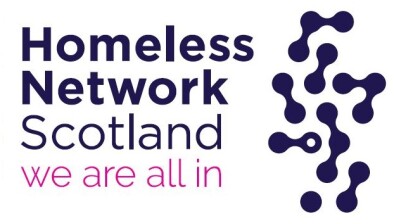Shared Spaces in a rapid rehousing world
Scotland’s annual conference looking in detail at the causes of and solutions to homelessness takes place from 5 – 7 October, presented by Homeless Network Scotland.
This year’s theme is choice, covering topics from the housing we want to live in, to the area we want to settle and the support we want to tap into as Covid continues to have an impact on housing supply, allocations and support services for those already in tenancies.
Delegates will benefit from specialist conference platform, Remo – which takes online events to a new level. Remo enables greater interaction, with table-to-table networking and the freedom to roam and join spontaneous conversations in the ‘room’.
A key piece of research and policy direction will be launched at the conference on Tuesday 5 October when the much-anticipated report, Shared Spaces, looks at the future role of supported and shared housing as a response to homelessness in Scotland. The session is presented by lead researcher Anna Evans, director at the consultancy, Indigo House, along with chair of the Research Advisory Group, Dr Beth Watts, senior research fellow, I-SPHERE at Heriot-Watt University.
Key national policy points toward enabling people to live independently and at home or in a homely setting in their community – including the National Health and Wellbeing Outcomes, the Independent Review of Adult Social Care and Rapid Rehousing and Housing First. Shared Spaces has been described as the ‘missing piece’ in current homelessness policy and in the backdrop of the unsuitable accommodation order and the imminent Scottish Government consultation on new duties to prevent homelessness.
Homeless Network Scotland commissioned and co-funded, along with Action for Children, Crisis and Turning Point Scotland, a qualitative research project to better understand the following questions.
- In what circumstances if any is shared or supported accommodation the appropriate housing option for households experiencing homelessness?
- What should the shared and supported accommodation options required in these circumstances look like?
- What is the likely scale of such shared and supported accommodation options likely to be in the future?
- How well placed are local authorities and service providers to adopt these housing options at the scale required?
The Research Advisory Group includes all the funders and other key stakeholders with insights into this area, with the findings expected to impact significantly on how housing options are considered and commissioned locally.
Dr Beth Watts, Cchair of the Research Advisory Group, said: “Scotland’s vision for a response to homelessness led by a focus on rapid rehousing into ordinary homes is ambitious, evidence-informed and extremely welcome. It’s essential to tackle the harms and social costs associated with temporary and often shared forms of accommodation used to accommodate those facing homelessness.
“For the very small number of people experiencing homelessness for whom mainstream housing is not an option, it’s absolutely essential we rapidly develop appropriate, high-quality options that meet their needs and aspirations and respect their autonomy and choice. This research is a crucial step in that direction, and the research advisory group has been eager to support and inform the research process. We remain committed to translating this research into meaningful policy and practice change with wider stakeholders.”
Eileen McMullan, policy lead at the SFHA, will be joining a panel at the event immediately following Anna Evans’ slot to discuss shared or supported housing within a rapid rehousing environment in Scotland, with the opportunity for delegates to get involved and have their say too.
Eileen said: “As part of a national transition toward a new ‘rapid rehousing’ approach, local partners are also looking at developing options for a smaller number of people, where mainstream housing, including Housing First, is not possible or preferable. This is the space occupied by the Shared Spaces report, looking at what works and why. For housing associations, which frequently own the properties hosting shared accommodation, it is important to be part of the debate and get involved in discussions about how shared spaces can play a part in preventing repeat homelessness and supporting people to live independently, together, when that is preferred.”
Helen Carlin, chief executive of the charity Rowan Alba, will also be on the panel for Tuesday’s session. Helen’s organisation provides a range of services in Edinburgh including accommodation and one-to-one support.
Helen said: “Our tenants look on Thorntree Street as a place they can finally call home after many long years of being pushed from one unsuitable accommodation to another and usually ending up living on Scotland’s streets. With the security of a permanent home, people begin to make other positive changes in their lives, often around issues they have ignored for years. It is not just having a home and long-term support to keep it. It is feeling part of a community, sharing stories, meals and knowing someone is there when you put your key in the door.”
The Shared Spaces research will launch at the conference on Tuesday 5 October 2021 starting at 11am as part of day one. More information and booking here.





